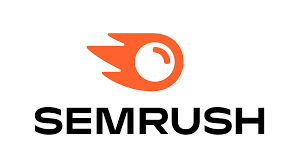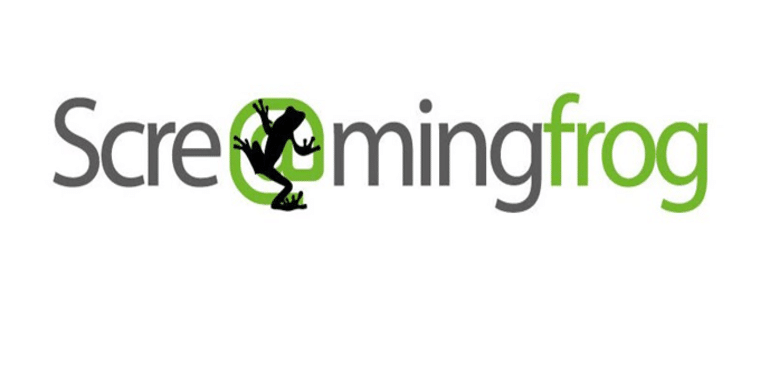This Article has been revised, edited and added to, by Poulomi Chakraborty.
- What is SEO and Why is it Crucial for Startups?
- Unique Challenges Startups Face
- Opportunities and Strategies for Success
- SEO Tools to Propel Your Startup Forward
- Advanced SEO Techniques for Tech Startups
- Navigating Algorithm Changes & Updates
- Conclusion: SEO – A Marathon, Not a Sprint
In the whirlwind world of tech startups, where innovation meets ambition, there’s an imperative need to ensure your voice is heard above the digital noise. SEO (Search Engine Optimization) presents a promising pathway for startups to gain visibility, drive organic traffic, and foster growth. This guide aims to demystify the challenges tech startups face in the SEO arena and shine a light on the myriad of opportunities at their disposal.
What is SEO and Why is it Crucial for Startups?

SEO refers to the strategies and techniques employed to improve a website’s visibility on search engines. For tech startups, especially those just embarking on their digital journey, gaining this visibility is paramount.
Benefits for Tech Startups:
- Higher Visibility: SEO can propel your startup to the forefront of relevant searches.
- Increased Organic Traffic: A well-optimized website attracts more visitors without paid advertising.
- Credibility: Ranking high on search engines builds trust with your audience.
Tailoring SEO for Tech Startups
Tech startups aren’t like regular businesses. Often introducing new concepts, technologies, or services to the market, their SEO strategy must reflect this uniqueness.
Elements to Consider:
- Industry Jargon: Your audience may be tech-savvy, but ensuring content clarity is vital.
- Innovation Emphasis: Highlighting what sets your tech product apart can determine your SEO success.
- Rapid Evolution: In the fast-paced tech world, your SEO strategy must be adaptable.
The Competitive Edge through Strategic SEO
For tech startups, SEO is not merely a marketing tactic; it is a strategic tool that can significantly influence your company’s position in the competitive landscape. In a world where digital presence dictates market visibility, SEO empowers startups to punch above their weight, competing against established players. Strategic SEO practices enable startups to identify and exploit unique opportunities, tailoring their digital footprint to the specific needs and interests of their target audience.
Building a Sustainable Growth Engine
At the core of every startup’s digital strategy should be the aim to build a sustainable growth engine. SEO stands at the heart of this goal by providing a mechanism for continuous, organic growth. Unlike paid advertising channels, which cease to generate traffic once the funding runs out, a well-implemented SEO strategy continues to attract visitors and potential customers over time. This makes SEO an investment in your startup’s long-term visibility and viability.
SEO as a Market Research Tool
Beyond its role in improving search rankings, SEO can serve as a powerful market research tool. Keyword research, an integral part of any SEO strategy, offers deep insights into what potential customers are searching for, their pain points, preferences, and the language they use to describe their needs. By aligning your content strategy with these insights, startups can more effectively communicate their value proposition, tailoring their offerings to meet the market’s demands.
Enhancing User Experience and Brand Perception
Google’s search algorithms increasingly prioritize user experience (UX) factors, such as page load speed, mobile-friendliness, and content quality. By focusing on these aspects, startups not only improve their SEO performance but also enhance the overall user experience of their digital platforms. A seamless, engaging user experience fosters positive brand perception, building trust and credibility with your audience. In the startup world, where first impressions can be decisive, the importance of this cannot be overstated.
Integrating SEO with Broader Business Goals
The true power of SEO is realized when it is integrated with a startup’s broader business goals. This involves aligning your SEO strategy with your product development, sales, and customer service efforts. For instance, content optimized for SEO can also support sales by providing valuable information that guides potential customers through the buying process. Similarly, insights gained from SEO analytics can inform product development, highlighting areas for improvement or potential new features that address users’ needs.
Strategic SEO as a Startup Imperative
For tech startups navigating the complexities of the digital world, SEO is much more than a checklist of technical requirements. It is a strategic imperative that supports sustainable growth, enhances market competitiveness, and aligns closely with overall business objectives. By understanding the deeper strategic implications of SEO, startups can more effectively leverage this powerful tool to carve out their niche in the digital landscape, attract and retain customers, and build a strong foundation for long-term success.
Unique Challenges Startups Face

Every startup grapples with challenges, and in the realm of SEO, these hurdles can seem particularly daunting. Recognizing these challenges is the first step toward overcoming them.
Limited Brand Recognition
Unlike established companies, startups lack brand recognition, which can hinder organic search visibility.
Overcoming This Challenge:
- Consistent Branding: Maintain consistent messaging and visuals across all channels.
- Engage on Social Media: Use platforms like Twitter and LinkedIn to foster brand discussions.
- Guest Posting: Contribute articles to renowned industry platforms to boost brand exposure.
Restricted Budgets
Startups often operate on lean budgets, making costly SEO campaigns unfeasible.
Solutions:
- In-House SEO: Equip a team member with basic SEO knowledge using online courses.
- Freemium SEO Tools: Use free versions of tools like Moz and SEMrush for initial optimizations.
- Focus on Content: Prioritize high-quality, original content over expensive campaigns.
Navigating Competitive Keywords
Established companies often dominate high-traffic keywords, leaving startups struggling for visibility.
Strategies to Combat This:
- Long-Tail Keywords: Instead of competing for broad terms, target specific, longer phrases with less competition.
- Local SEO: For startups targeting specific regions, local SEO can level the playing field.
- Leverage Niche Authority: Focus on becoming an authority in a specific niche rather than competing broadly.
Establishing a Niche in a Saturated Market
One of the foremost challenges tech startups face is carving out a unique niche in a market often saturated with competitors. In the realm of SEO, this translates into finding and capitalizing on specific keywords and topics that are not already dominated by larger, more established companies.
Strategic Niche Optimization
To navigate this challenge, startups should focus on strategic niche optimization. This involves a thorough analysis of the market to identify under-served areas or specific problems that your startup can address more effectively than competitors. By focusing your SEO efforts on these niche areas, you can attract a targeted audience looking for precise solutions, thereby building a dedicated user base that can grow over time.
Adapting to Search Engine Algorithm Changes
Another significant challenge for startups is keeping up with the frequent and sometimes unpredictable changes in search engine algorithms. These changes can dramatically affect a website’s visibility and organic search traffic, posing a particular risk for startups that rely heavily on search engines for customer acquisition.
Agile SEO Strategy
An agile SEO strategy is crucial for startups to adapt quickly to algorithm changes. This includes staying informed about updates, regularly auditing your website for compliance with best practices, and being ready to pivot your content and keyword strategies in response to new algorithm criteria. Engagement with an SEO community, through forums or professional networks, can also provide early insights into shifts in the search landscape, allowing startups to adjust their strategies proactively.
Building Authority with Limited Resources
For many startups, another daunting challenge is building domain authority with limited resources. Domain authority is a critical factor in search rankings, and establishing it requires consistent effort in producing high-quality content and earning backlinks from reputable sites.
Leverage Partnerships and Community Engagement
Startups can overcome this hurdle by leveraging partnerships and actively engaging in relevant online communities. Collaborating with other businesses or influencers in your niche can lead to valuable backlink opportunities. Similarly, participating in industry forums, answering questions related to your field on platforms like Quora, or engaging in social media discussions can help build your startup’s reputation as a thought leader, indirectly contributing to your SEO efforts by generating interest and potential backlinks.
Turning Challenges into SEO Opportunities
The unique challenges startups face in SEO are significant but not insurmountable. By adopting a strategic approach focused on niche optimization, maintaining agility in the face of search algorithm changes, and creatively building authority, startups can navigate these hurdles effectively. The key is to view these challenges not just as obstacles but as opportunities to refine your SEO strategy, distinguish your brand, and build a strong, loyal customer base. Through perseverance, innovation, and strategic action, startups can turn the challenges of SEO into stepping stones for long-term success and visibility in the digital marketplace.
Opportunities and Strategies for Success

Every challenge presents an opportunity. The digital landscape is rife with avenues for startups to shine, provided they harness the right strategies.
Leveraging Content Marketing
Content is the cornerstone of SEO. For startups, it offers an opportunity to showcase expertise and attract organic traffic.
Effective Content Strategies:
- Blog Regularly: Maintain a consistent blog schedule, discussing industry trends, product updates, or user guides.
- Diversify Content: Don’t restrict yourself to blog posts. Explore webinars, e-books, and video content.
- Engage & Respond: Engage with readers’ comments, and address their queries or feedback.
Harnessing the Power of Backlinks
Backlinks, or external sites linking back to yours, are a strong ranking signal for search engines.
Building Quality Backlinks:
- Guest Blogging: Contribute to reputable industry blogs and gain links back to your site.
- Engage in PR: Launch press releases on product launches or significant milestones to garner media backlinks.
- Collaborations: Collaborate with influencers or other startups for mutual promotional efforts.
Adapting with Agility
The tech sector’s ever-evolving nature demands that startups remain agile, pivoting their strategies as necessary.
Staying Agile in SEO:
- Regular Site Audits: Regularly audit your site for broken links, page speed, and other SEO health factors.
- Keyword Refresh: As your product evolves, so should your target keywords. Regularly update your keyword strategy.
- Feedback Loop: Act on customer feedback. If they’re discussing features or aspects not highlighted on your site, update your content accordingly.
Cultivating a Brand Identity through SEO
In the crowded digital arena, a distinct brand identity can significantly enhance your startup’s visibility and appeal. SEO plays a critical role in this process by ensuring that your brand‘s unique voice and values are consistently communicated across all digital touchpoints.
Authentic Content Creation
Creating authentic content that resonates with your target audience is at the heart of cultivating a strong brand identity. This involves going beyond basic product descriptions to tell your brand’s story, share your founding journey, and discuss the problems you’re passionate about solving. Such content not only improves your SEO but also helps build a connection with your audience, making your brand more memorable and relatable.
Exploiting the Synergy between SEO and Other Digital Marketing Channels
While SEO is powerful on its own, its true potential is unlocked when integrated with other digital marketing channels like social media, email marketing, and paid advertising. This holistic approach ensures a unified marketing strategy, where each channel reinforces the others, leading to a compound effect on your overall digital presence.
Integrated Marketing Campaigns
Developing integrated marketing campaigns involves using insights from SEO, such as keyword trends and user behavior, to inform your content strategy across channels. For instance, a high-performing blog post can be repurposed into a series of social media posts, an email newsletter topic, or even a paid ad campaign. This not only amplifies your reach but also provides multiple touchpoints for your audience to engage with your brand, enhancing brand recall and customer loyalty.
Leveraging Local SEO for Global Reach
For tech startups looking to make an impact on a global scale, local SEO might seem counterintuitive. However, establishing a strong local presence can serve as a launchpad for international growth. This approach allows startups to dominate niche markets region by region, building a strong foundation and gaining valuable insights that can inform global expansion strategies.
Geo-targeted Content and Listings
To capitalize on local SEO, startups should focus on creating geo-targeted content and ensuring their business is listed accurately on local directories and Google My Business. Tailoring your content to address local issues or interests not only improves your visibility in local search results but also helps in building a loyal local customer base that can advocate for your brand on a global level.
Strategic SEO as a Catalyst for Start-Up Success
SEO is not just a marketing tool; it’s a strategic asset that, when utilized effectively, can catalyze a startup’s success. From cultivating a unique brand identity and integrating SEO with broader marketing efforts to leveraging local SEO for global reach, the opportunities are vast. The key for startups is to remain agile, innovative, and always aligned with their core values and goals.
By doing so, they can navigate the digital landscape with confidence, turning potential challenges into opportunities for growth and success. Through strategic SEO practices, startups can establish a strong digital footprint, engage meaningfully with their target audience, and build a sustainable path toward achieving their business objectives.

Related: Check out our free SEO suite

SEO Tools to Propel Your Startup Forward
While the realm of SEO might seem vast and sometimes overwhelming, a range of tools are available to make the journey more navigable. For tech startups, these tools can be invaluable in decoding the intricacies of SEO, offering actionable insights and streamlining efforts for optimal results.
Keyword Research Tools
The foundation of any effective SEO strategy is understanding and targeting the right keywords.
Google Keyword Planner:
- Functionality: A free tool offered by Google that provides keyword ideas and traffic estimates.
- Benefit for Startups: Ideal for startups with tight budgets, it provides a basic understanding of keyword trends and competitiveness.
SEMrush:

- Functionality: Offers comprehensive keyword analytics, including search volume, trend, and keyword difficulty.
- Benefit for Startups: Allows startups to explore niche keyword opportunities and evaluate the competitive landscape.
Website Audit Tools
Ensuring your website’s health and technical soundness is crucial for SEO. Regular audits can highlight areas of improvement.
Screaming Frog:

- Functionality: A downloadable software that crawls websites, highlighting issues like broken links, missing metadata, and more.
- Benefit for Startups: With a free version available, startups can conduct basic audits, identifying and rectifying foundational SEO issues.
Ahrefs:

- Functionality: Beyond backlink analysis, Ahrefs offers site audit features, showcasing technical issues and on-page SEO opportunities.
- Benefit for Startups: Offers insights into competitors’ backlink profiles, helping startups identify potential linking opportunities.
Backlink Analysis Tools
Understanding and building your site’s backlink profile is integral for SEO success.
Moz:
- Functionality: Moz’s Link Explorer provides insights into a website’s backlink profile, domain authority, and more.
- Benefit for Startups: Helps startups gauge the quality of incoming links and identify potentially harmful links that need addressing.
BuzzSumo:
- Functionality: While primarily a content research tool, BuzzSumo also offers insights into which pieces of content within your niche are garnering significant backlinks.
- Benefit for Startups: Assists in content strategy formulation by identifying content types and topics that resonate with audiences and earn backlinks.
Harnessing AI-Powered SEO Analytics

The advent of artificial intelligence (AI) in SEO tools has revolutionized the way startups can approach their SEO strategy. AI-powered analytics tools go beyond traditional data analysis, offering predictive insights, automated content optimization suggestions, and advanced competitor analysis.
AI-Driven Content Optimization
Tools that utilize AI for content optimization can analyze your existing content and compare it with top-performing content in your niche. They provide actionable recommendations to enhance readability, keyword usage, and overall content quality. By incorporating these suggestions, startups can significantly improve their content’s search engine rankings and user engagement.
Enhancing User Experience with Technical SEO Tools
As search engines increasingly prioritize user experience (UX) factors, technical SEO becomes crucial for startups aiming for the top spots in search results. Technical SEO tools can help identify and fix issues that impact site performance and user experience, such as slow load times, mobile usability problems, and security vulnerabilities.
Site Speed Optimization Tools
Tools dedicated to optimizing site speed can pinpoint elements that slow down your website, such as large images, inefficient code, and server response times. Implementing the recommended fixes can dramatically improve page load speeds, enhancing user experience and positively influencing your search rankings.
Leveraging Competitive Analysis for Strategic Insights
Understanding your competitors’ SEO strategies is crucial for carving out your niche in the digital marketplace. Competitive analysis tools provide in-depth insights into your competitors’ keyword strategies, backlink profiles, and content marketing efforts, allowing you to identify gaps and opportunities in your own strategy.
Strategic Keyword Gap Analysis
Competitive analysis tools can reveal the keywords your competitors are ranking for that you are not. This ‘keyword gap’ analysis enables you to uncover untapped keyword opportunities and refine your content strategy to target these areas, potentially capturing additional market share and driving more targeted traffic to your site.
Building a Comprehensive SEO Toolkit
For tech startups, building a comprehensive SEO toolkit is essential for navigating the complexities of the digital landscape. By embracing AI-powered analytics for predictive insights and content optimization, focusing on technical SEO to enhance user experience, and leveraging competitive analysis for strategic advantage, startups can develop a robust SEO strategy that drives growth and success.
Beyond just tools, the strategic application of these resources, informed by a deep understanding of SEO principles and market dynamics, is what will truly propel your startup forward in the competitive tech arena. As you continue to expand your toolkit, remain adaptable, embracing new technologies and methodologies to stay ahead in the ever-evolving world of SEO.
Advanced SEO Techniques for Tech Startups
While foundational SEO practices lay the groundwork for digital visibility, it’s the advanced techniques that truly give startups an edge. Let’s venture into some sophisticated strategies that can exponentially boost your startup’s SEO game.
Structured Data & Schema Markup
Structured data, often referred to as schema markup, is a type of code added to your site that helps search engines better understand your content.
Implementation:
- Use Google’s Structured Data Markup Helper: This tool helps create structured data for various content types without deep technical know-how.
- Highlight Unique Aspects: For tech startups, this might include software features, pricing models, or client testimonials.
Benefits for Startups:
- Rich Snippets: Enhanced search listings, like review stars or product pricing, can improve click-through rates.
- Voice Search: Structured data can help your content become the answer for voice search queries.
Mobile Optimization & AMP
With mobile searches outpacing desktop, ensuring your startup’s site is mobile-friendly isn’t just recommended; it’s essential.
Implementation:
- Responsive Design: Your website should automatically adjust and look appealing across devices.
- Accelerated Mobile Pages (AMP): This open-source initiative aims to make mobile pages load instantaneously.
Benefits for Startups:
- Improved User Experience: A seamless mobile experience reduces bounce rates and fosters engagement.
- Boosted Rankings: Google factors in mobile usability when determining rankings.
Topic Clusters & Pillar Content
This approach revolves around creating a comprehensive ‘pillar’ piece of content on a broad topic, supported by smaller, related articles (clusters). This interlinked structure is SEO gold.
Implementation:
- Identify Core Topics: For a tech startup, this could range from ‘AI in Healthcare’ to ‘Data Privacy Protocols’.
- Create High-Quality Pillar Content: Develop comprehensive content for these core topics.
- Develop Cluster Content: Write supporting articles, linking back to the pillar content.
Benefits for Startups:
- Authority Building: Establishing expertise on broad topics can cement your startup’s authority status.
- Enhanced Site Structure: Improved internal linking can boost user engagement and dwell time.
Mastering the Art of Semantic Search Optimization
As search engines become increasingly sophisticated, understanding and optimizing for semantic search—the context and intent behind search queries—becomes crucial. This involves moving beyond keywords to consider the broader topics and concepts that your target audience is interested in.
Contextual Content Creation
Creating content that addresses the comprehensive context of your audience’s needs can significantly boost your visibility in search results. This involves developing content that not only targets specific keywords but also covers related topics and questions that your audience might have. By doing so, startups can position themselves as authoritative sources of information, improving their rankings and attracting a more engaged audience.
Implementing Advanced Technical SEO Tactics
While basic technical SEO ensures that your site is crawlable and indexable, advanced technical SEO tactics fine-tune your site’s architecture to meet the latest search engine guidelines and user expectations.
Progressive Web App (PWA) Optimization
For tech startups, implementing Progressive Web Apps (PWAs) can be a game-changer. PWAs combine the best of web and mobile apps, offering users a fast, reliable, and engaging experience. Optimizing your site as a PWA can significantly improve load times, increase engagement, and enhance mobile usability—factors that positively impact your SEO.
Leveraging Video Content for SEO
Video content has exploded in popularity and importance for SEO, thanks to its ability to engage users and keep them on your site longer. For startups, creating and optimizing video content can be a powerful tool to enhance brand visibility and authority.
Video SEO Best Practices
To leverage video content effectively, ensure that your videos are optimized for search engines. This includes using descriptive titles and meta descriptions, implementing structured data for video content, and hosting videos on your site or on platforms that boost your content’s visibility. Additionally, creating video transcripts can make your content accessible to a wider audience and further boost your SEO efforts.
Exploiting the Potential of Voice Search
With the rise of digital assistants, optimizing for voice search has become an essential SEO strategy. Voice search queries often differ from traditional text searches, tending to be longer and more conversational.
Voice Search Optimization Strategies
To optimize for voice search, focus on long-tail keywords that mimic natural speech patterns and prioritize content that answers direct questions. Creating FAQ pages or sections within your content that directly answer common questions can improve your chances of appearing in voice search results, positioning your startup as a go-to source for information in your niche.
Pioneering SEO Innovation for Startups
For tech startups, pioneering SEO innovation means going beyond traditional strategies and continuously adapting to the rapidly evolving digital landscape. By mastering semantic search optimization, implementing advanced technical SEO tactics, leveraging video content, and optimizing for voice search, startups can not only improve their search engine rankings but also offer a superior user experience.
These advanced SEO techniques require a blend of creativity, technical expertise, and strategic thinking. However, the benefits they offer in terms of brand visibility, user engagement, and long-term growth potential make them indispensable for any tech startup looking to make its mark online.
Navigating Algorithm Changes & Updates
The dynamic nature of SEO is epitomized by the frequent algorithm updates search engines deploy. For startups, understanding and adapting to these changes is imperative.
Staying Informed
Search engines, especially Google, occasionally roll out significant updates. Keeping abreast of these changes can ensure your startup’s SEO strategy remains effective.
Resources:
- Google Webmasters Blog: An official source of updates and best practices.
- SEO Platforms: Websites like Search Engine Journal and Moz frequently dissect and discuss algorithm changes.
Adapting with Flexibility
Rigidity can be an SEO strategy’s downfall. Startups should be ready to pivot their tactics based on algorithm shifts.
Audit & Adjust:
- Regular Monitoring: Use tools like Google Analytics to monitor traffic and keyword rankings.
- Feedback Loop: If an algorithm update affects your site negatively, assess the potential reasons and adjust your strategy accordingly.
Embracing a Culture of Continuous Learning
The first step in effectively navigating algorithm changes is fostering a culture of continuous learning within your organization. This proactive approach ensures that your team remains informed about the latest SEO trends, algorithm updates, and best practices.
Establishing SEO Learning Channels
Create channels for regular knowledge sharing and training within your team. This could involve subscribing to leading SEO newsletters, attending webinars and conferences, and conducting internal training sessions. By making continuous learning a core aspect of your startup’s culture, you ensure that your SEO strategies are always informed by the latest insights and innovations.
Advanced Data Analysis for Predictive Insights
In the age of big data, advanced analytics tools can offer predictive insights that enable startups to anticipate and adapt to algorithm changes more effectively. These tools can analyze vast amounts of search data to identify emerging trends, shifts in user behavior, and potential impacts of algorithm updates on your search rankings.
Leveraging Machine Learning for SEO
Invest in SEO tools and platforms that utilize machine learning algorithms to analyze search trends and predict future movements. These tools can help you refine your content strategy, optimize your website’s technical setup, and make informed decisions about your SEO priorities, positioning you a step ahead of algorithm changes.
Building Resilience through Diverse Traffic Sources
While SEO is a vital channel for organic traffic, relying solely on search engines can leave your startup vulnerable to fluctuations caused by algorithm updates. Diversifying your traffic sources builds resilience, ensuring that an update doesn’t drastically impact your overall digital presence.
Integrating Multichannel Marketing Strategies
Develop a multichannel marketing strategy that encompasses social media, email marketing, content marketing, and paid advertising, alongside SEO. By building a strong presence across multiple platforms, you can mitigate the risk associated with search engine algorithm changes, ensuring a steady flow of traffic and engagement with your brand.
Prioritizing Quality and User Experience
One constant in the ever-changing world of search engine algorithms is the emphasis on quality content and superior user experience. These elements remain at the core of most algorithm updates, which aim to reward sites that offer value to users.
Focusing on Holistic SEO
Adopt a holistic approach to SEO that goes beyond keywords and backlinks to encompass the overall quality and user experience of your website. This includes ensuring fast load times, mobile responsiveness, intuitive navigation, and engaging, valuable content. By prioritizing these elements, your startup can weather algorithm changes while continuing to deliver a website that resonates with users and search engines alike.
Turning Challenges into Opportunities
Algorithm changes and updates, while challenging, also offer opportunities for innovation and differentiation. By embracing a culture of continuous learning, leveraging advanced data analytics, diversifying traffic sources, and prioritizing quality and user experience, tech startups can navigate the complexities of SEO with agility and insight. These strategic approaches not only prepare startups to adapt to algorithm changes but also position them to capitalize on new opportunities, driving sustainable growth and competitive advantage in the digital marketplace.
Conclusion: SEO – A Marathon, Not a Sprint
In the journey of a tech startup, SEO stands as a beacon, guiding through the tumultuous waters of digital visibility and competition. It’s a discipline that rewards patience, persistence, and strategic foresight, akin to a marathon where endurance and long-term planning triumph over quick fixes and fleeting gains. As startups navigate this path, it’s crucial to remember that SEO’s true value unfolds over time, building a foundation of credibility, user trust, and organic growth.
This process involves not only adapting to the ever-evolving landscape of search engine algorithms and user behavior but also staying true to your brand’s voice and mission. By weaving SEO into the fabric of your digital marketing strategy, you cultivate an online presence that resonates with authenticity and authority. In this marathon, each step forward, guided by insightful analysis and innovative tactics, brings your startup closer to the finish line of sustained success and market leadership. Thus, embrace the journey with resilience and vision, for the rewards of a well-executed SEO strategy are both profound and enduring.
Read Next:
- How Businesses Can Use Sales Intelligence
- How to Prevent Your Business Falling into Marketing Myopia
- The 3Ps of Marketing that You Absolutely Must Follow
- 7 Marketing Functions Every Business Must Excel at
- How Businesses Can Use Sales Acceleration to drive Rapid Growth
- Best SEO tools in 11 Categories to Drive Up Your Search Engine Traffic!






















Comments are closed.